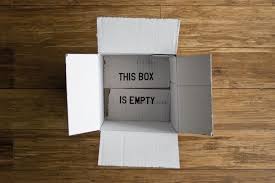“Born again” has become a generic term often describing a particular demographic, usually socially conservative evangelical Christians. But is the term really so generic and simple?
This Sunday’s lectionary suggests the story in John 3 in which Jesus introduced the phrase “You must be born again.” Interestingly, Jesus used this phrase on only this one occasion with this one person, Nicodemus, in a private setting. I’m no Biblical scholar, but I suspect that if Jesus used a term only once, in a very specific situation, there was nothing generic or simple about it.
Nicodemus, a high-ranking Jewish leader, came to Jesus under the cover of night desperate for help. “What can I do that I haven’t already done to find the kingdom of God. I have followed all the Jewish laws, I have everything I ever wanted, I have a life that most people envy, yet something is lacking. How might I fill this emptiness?”
Jesus was direct. “You must be born again.” Huh? Nick was risking his reputation to approach this untrained teacher with some serious questions, and what did he get? An absurd statement describing a physical impossibility.
But this was no random, generic statement by Jesus. This was a punch in the gut.
If you asked Nicodemus what was the most important thing in his life, he would likely have said, “My birth.” He had been born into the family of Abraham and in the particular tribe that allowed him his place of prestige in the religious hierarchy and the community. Nicodemus was who he was personally and professionally by virtue of his birth and ancestry.
 By telling Nicodemus he must be born again, Jesus way saying, “You have put too much stock in your primary attachment, your birth and heritage. You have neglected the more important matters. If you want what you say you want, you must take your most cherished attachment and lay it aside. You must surrender the power and perks you have by virtue of your birth in order to experience a new kind of life.”
By telling Nicodemus he must be born again, Jesus way saying, “You have put too much stock in your primary attachment, your birth and heritage. You have neglected the more important matters. If you want what you say you want, you must take your most cherished attachment and lay it aside. You must surrender the power and perks you have by virtue of your birth in order to experience a new kind of life.”
Being born again was simply the metaphor Jesus used to address Nicodemus specifically. Going back to yesterday’s post, Nicodemus had become an empty container. His birth, heritage, and the rules and regulations provided the structure for his life, his container. But something was missing. The contents of the container.
What might it mean for us to be “born again,” to focus on the content more than the container? That’s this week.
0 Comments until now
Add your Comment!